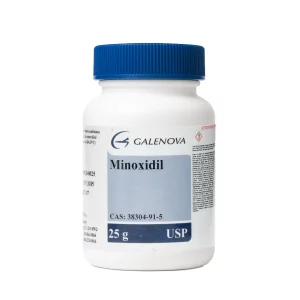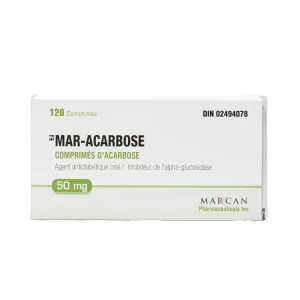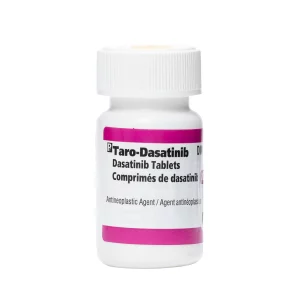Your cart is empty.
Your cart is empty.
So, you decided to get fit for the Summer, but you just aren’t getting there. Your body isn’t adjusting as fast as you’d like. You’re eyeing those weight loss injections. Hold on! The first step is understanding your body.
Metabolism is often misunderstood when it comes to weight loss, with many people believing it’s the primary factor determining their ability to lose weight. In reality, metabolism is your body’s process of converting food into energy through complex chemical reactions. While it does play an important role in how many calories you burn daily, it’s just one piece of the weight management puzzle.
Understanding metabolism and weight loss helps create realistic expectations and effective strategies for reaching your health goals. Many factors influence your metabolic rate, and while you can’t dramatically change your baseline metabolism, you can support it through lifestyle choices. Learning about these connections empowers you to make informed decisions about your health journey. This article covers how metabolism works, its impact on weight loss, common myths, and practical ways to support healthy metabolic function.

Metabolism represents the sum of all chemical processes that maintain life in your body. These processes include breaking down nutrients from food, building new tissues, repairing cells, and eliminating waste products. Think of metabolism as your body’s engine that constantly runs to keep all systems functioning properly, even when you’re sleeping. It’s also a good rule of thumb to know the difference between fat loss vs weight loss, just so you can properly align your goals.
Metabolism consists of three main components that determine your total daily energy expenditure. Basal metabolic rate (BMR) accounts for 60-75% of calories burned and represents the energy needed for basic functions like breathing, circulation, and cell production. Physical activity includes both structured exercise and daily movement, typically accounting for 15-30% of total calories. BMR makes up the largest portion of daily calorie burn because your body requires substantial energy to maintain vital functions.

A higher or lower metabolic rate impacts your daily calorie needs and influences how easily you gain or lose it. People with faster metabolisms burn more calories at rest, while those with slower metabolisms require fewer calories to maintain their current weight. However, these differences are often smaller than people expect – typically varying by 200-300 calories daily between individuals of similar size.
Metabolism alone does not cause weight gain or loss – calorie balance determines body weight changes. If you consume more calories than you burn, you’ll gain weight regardless of your metabolic rate. The link between metabolism and body composition matters significantly for long-term weight management. Muscle mass burns more calories at rest than fat tissue, so maintaining or building muscle supports higher metabolic rates. This is why body recomposition vs weight loss strategies often produce better long-term results than focusing solely on scale weight.
Age affects metabolic rate primarily through changes in muscle mass and hormone production. Starting around age 30, people typically lose 3-8% of muscle mass per decade without resistance training. Since muscle tissue burns more calories than fat tissue, this natural muscle loss gradually slows metabolism. However, the effect is often smaller than commonly believed – about 1-2% per decade.
Gender differences in metabolic rate exist mainly due to differences in body composition and size. However, when adjusted for lean body mass and size, the differences between men and women are relatively small.
Muscle mass provides one of the most significant influences on metabolic rate that you can control. Each pound of muscle burns approximately 6-7 calories daily at rest, while fat tissue burns only 2-3 calories. This is why strength training becomes crucial for maintaining metabolism during weight loss and as you age. Genetics, hormones, sleep quality, stress levels, and overall health status also influence metabolic function.
The myth that “a slow metabolism prevents weight loss” often oversimplifies complex factors affecting weight management. While individual metabolic differences exist, lifestyle factors like food intake, physical activity, and adherence to healthy habits typically play larger roles in weight loss success. Research shows that people often underestimate calorie intake and overestimate calorie burn more than they realize.
Claims that certain foods dramatically boost metabolism, while appealing, are generally exaggerated. Foods like chili peppers, green tea, and lean meats have small thermic effects, but these typically add up to burning only 10-50 extra calories daily – not enough for significant weight loss on their own. The idea of “metabolism-boosting foods” can be misleading if it distracts from creating appropriate calorie deficits. The assumption that “thin people always have faster metabolisms” doesn’t account for individual variation and lifestyle factors.
Increasing muscle mass through resistance training provides one of the most effective ways to support metabolic rate. Lifting weights 2-3 times weekly helps preserve and build muscle tissue, which burns more calories at rest than fat tissue. This becomes especially important during weight loss when the body tends to lose both fat and muscle without targeted exercise.
Staying active throughout the day beyond formal exercise helps boost total daily calorie expenditure. This includes taking stairs, parking farther away, standing while working, and incorporating movement into daily routines. Research shows that people who move more throughout the day often burn 300-500 additional calories daily compared to sedentary individuals.
Eating adequate protein helps maintain lean body mass and provides a higher thermic effect than carbohydrates or fats. Protein requires about 20-30% of its calories for digestion and processing, compared to 5-10% for carbs and 0-3% for fats. Consuming 0.8-1.2 grams of protein per pound of body weight supports muscle retention during weight loss.
Staying properly hydrated supports optimal energy conversion and metabolic processes. Even mild dehydration can reduce metabolic efficiency. Prioritizing sleep (7-9 hours nightly) and managing stress helps maintain healthy hormone levels that support metabolic function.
Reassessing calorie needs becomes important as you lose weight because smaller bodies require fewer calories for maintenance. This metabolic adaptation is normal and expected – your metabolism adjusts to match your new body size. Most people need to reduce calorie intake by about 20-25 calories for each pound lost to continue seeing progress.
Avoiding overly aggressive calorie cuts helps prevent excessive muscle loss and metabolic slowdown. Very low-calorie approaches often result in losing both fat and muscle, leading to greater metabolic adaptation than moderate approaches. Aim for 1-2 pounds of weight loss weekly through sustainable calorie deficits. Combining strength training with moderate cardio produces balanced results for both weight loss and metabolic support.
While genetics set a baseline metabolic rate, lifestyle habits can significantly influence your metabolism. Building muscle mass through strength training, staying active throughout the day, eating adequate protein, and maintaining good sleep habits can all support higher metabolic function.
Yes, metabolism typically slows by 1-2% per decade after age 30, primarily due to muscle loss and decreased activity levels. However, this decline isn’t inevitable or irreversible. Regular resistance training, adequate protein intake, and maintaining active lifestyles can significantly counteract age-related metabolic slowdown. Many people in their 50s and 60s have higher metabolic rates than sedentary 20-year-olds.
Focus on building and maintaining muscle mass through resistance training, staying active throughout the day, and eating adequate protein. These approaches provide the most significant and sustainable impacts on metabolic rate. While some foods and supplements claim metabolism-boosting effects, their impact is typically minimal compared to these fundamental lifestyle factors.
Most metabolism-boosting supplements and products have minimal impact on actual metabolic rate. Claims about dramatic increases are usually exaggerated or based on very short-term effects. The most effective “metabolism boosters” are strength training, daily physical activity, adequate protein intake, good sleep, and stress management – none of which require special products or supplements.
Usually not. While individual metabolic differences exist, most weight loss challenges stem from factors like underestimating calorie intake, overestimating calorie burn, inconsistent adherence to plans, or unrealistic expectations. Check with a licensed professional first, they can give you a clear idea of what is going on.

Minoxidil 25mg - Oral vasodilator for blood pressure management. Cardiovascular foundation support, pharmaceutical-grade standards, expert monitoring required.

Acarbose 50mg 120 Tablets - Gentle introduction to glucose control. Three-times daily with meals, precision-formulated tablet strength.

Dasatinib 20mg 60 Tablets - Flexible pediatric-strength dosing option. USP standards compliance, anytime administration, gradual increase capability.
Unlock savings on bundles and elevate your online experience today!